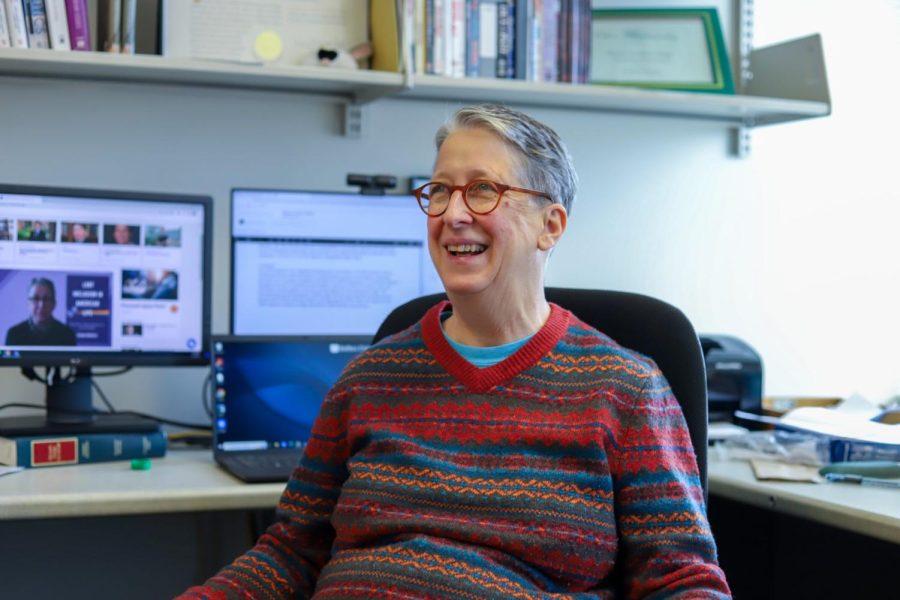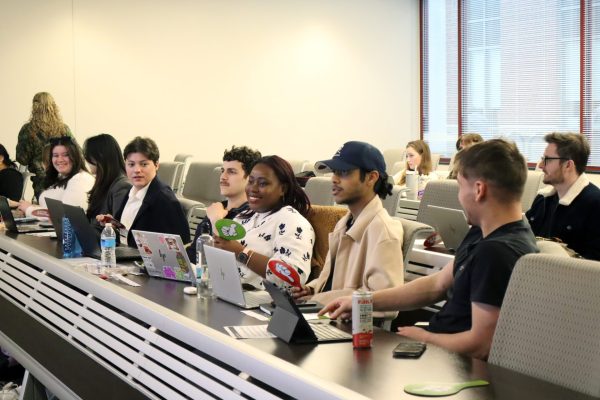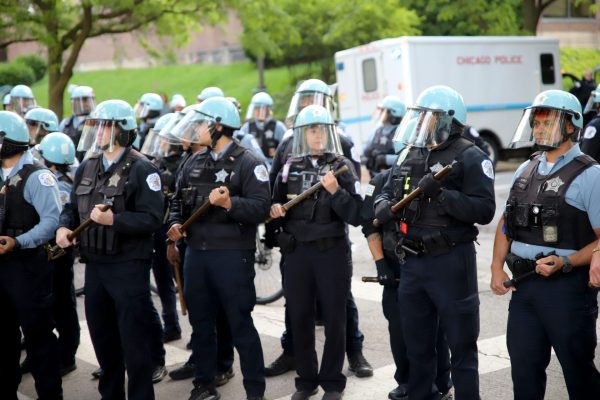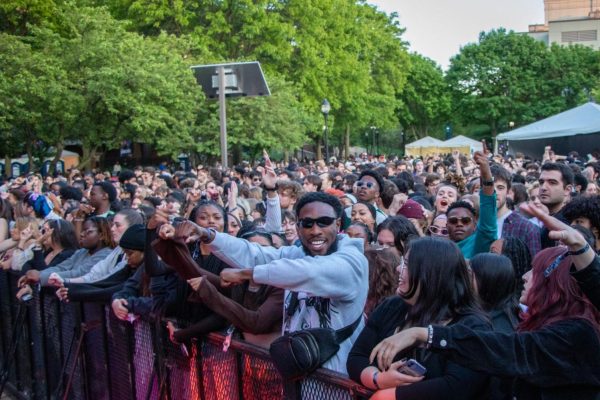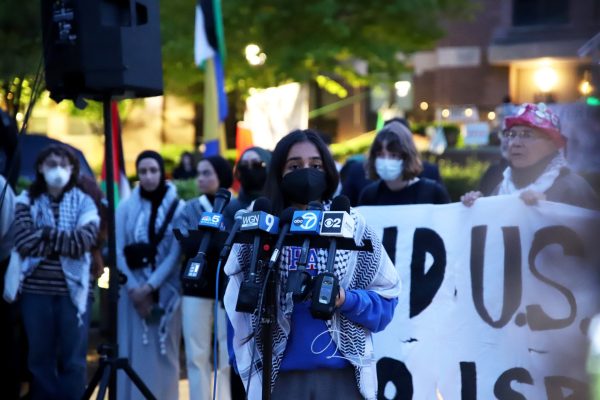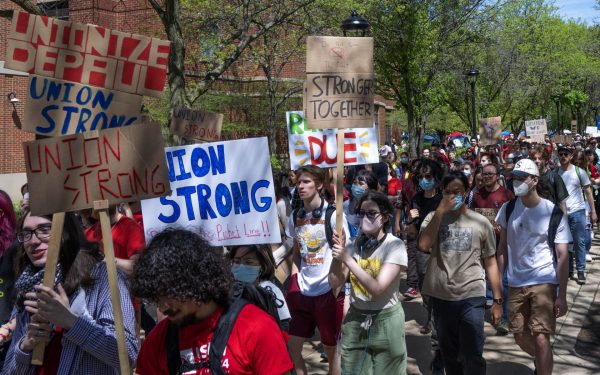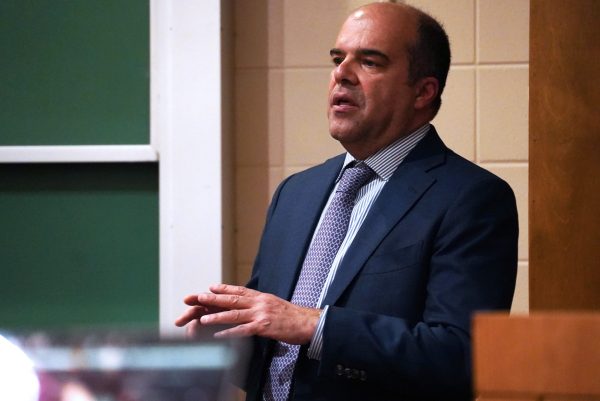DePaul professor and author writes book on queer visibility in modern culture
Susan Burgess, DePaul Senior Professional Lecturer and Internship Program Coordinator in the department of political science, published her most recent book “LGBT Inclusion in American Life.”
Despite the fact that queer visibility in pop culture is at an all-time high, according to the Human Rights Campaign, states across the country continue to introduce legislation threatening the well-being and civil rights of LGBTQ+ Americans.
DePaul senior professional lecturer Susan Burgess examines this complex relationship between pop culture and politics in her new book, “LGBT Inclusion in American Life: Pop Culture, Political Imagination, and Civil Rights,” which was recently published through New York University Press.
Burgess elaborated on the process of developing the book, finding a research method, and the prevailing importance of examining LGBTQ+ political history, especially with new legislation threatening everything from abortion rights to LGBTQ+ youth education. According to Burgess, the methodology of using pop culture in contrast with political history to examine cultural trends developed not as a book, but as a single article.
“I started by writing articles, and one was about how sex and gender norms, even in the James Bond series, which is notoriously in many ways misogynistic, changed over time,” Burgess said. “I wrote that article, and a friend of mine at Temple University, he happened to use it in a class that he was teaching.”
According to Burgess, it was the encouragement from her colleague at Temple that prompted her to explore the concept as a book:
“He said, you know, the students really like this, I think that you should build this out and write a book, and I was like, ‘OK,’” Burgess said.
For Burgess, the idea of using pop culture in contrast with political history was not due to a particular familiarity with media criticism.
“I think of it, not as media analysis so much, but more as cultural analysis,” Burgess said. “Most political scientists don’t really look at that. What I was interested in was why people’s attitudes about LGBTQ+ rights changed in this relatively quick period post-World War II.”
Burgess said examining queerness in popular media because it can give viewers a broader understanding of sex and gender norms.
“I was interested in how that played out in TV, in movies and plays and stuff like that because I thought that that would give us good insight into how the door opened for different pillars of LGBT civil rights,” Burgess said.
However, while the patterns in film and TV often tracked an eventual development towards progressive ideologies, Burgess said it is not always possible to define whether politics impacted pop culture or pop culture impacted politics.
“It’s kind of both,” Burgess said. “The word we use in political science for that sometimes is ‘constituent,’ meaning one influences the other. So policy influences culture and culture influences policy, they constitute each other and that just keeps happening over time. When political scientists look only at public opinion or look only at policy, they’re missing something important because the cultural aspect is a central force in this transformation.”
But both Burgess and other DePaul professors acknowledge that while there’s correlation, there’s never cut-and-dry causality between pop culture and politics.
“I would definitely argue that there is not a linear or simple cause and effect relationship between pop cultural visibility and legislation, but a complex network of negotiated meanings and responses,” said DePaul professor and LGBTQ+ advisory board member Dustin Goltz.
When determining which films she would include in the book, Burgess said she oriented her choices around general knowledge.
“There were some surprises about what would fit, but I tried to look at pieces of pop culture that were pretty popular: Casablanca, it’s often discussed as the greatest mainstream movie of all time, you know,” Burgess said. “I tried to look at things I thought were influential.”
Selecting television, though, was a more difficult task, she said.
“Now, there’s a little bit of a problem with that as you come into the contemporary era in television because not everybody watches the same show anymore,” Burgess said.
The variance in Americans’ viewership habits is also indicative of the multitude of prominent attitudes and disagreements about LGBTQ+ rights in policy and legislation, despite the fact that queer visibility has been a staple of mainstream American pop culture for nearly a decade.
“When a group of people attain equal rights or something approaching equal rights, there’s often a period of backlash, from people who don’t accept that,” Burgess said. “Now, the vast majority of people in the United States now accept basic rights for LGBT people. But there is still a significant minority, though they’re no longer the dominant discourse in mainstream politics. Now they have a pretty loud voice, so it’s not that they don’t matter, but it’s very significant that they’re no longer the majority.”
DePaul professor and LGBTQ+ studies advisory board member, Lourdes Torres, said the sudden influx of anti-trans legislation reflects the fact that conservative lawmakers are now in the minority.
“Unfortunately, currently, the right wing has found that organizing around anti-trans issues is effective for mobilizing their forces,” Torres said.
However, just because anti-LGBT+ agendas no longer have a majority on Capitol Hill does not mean there are not powerful voices advocating against queer rights in the Capitol.
“The Supreme Court often lags behind the politics of contemporary society,” Burgess said. “That has been a historical feature of the Supreme Court since the country’s founding. … Those folks are appointed for life, that’s one factor. The Supreme Court is appointed by presidents, and as the justices choose to retire, that’s entirely up to them.”
A crucial point of timing allowed former President Trump to appoint three justices, all conservative, all of whom are relatively young and will presumably hold office for at least a few decades before retiring.
“Both President Trump and President Carter were both in for one term, but Carter got no appointments, and Trump got three,” Burgess said. “So that changed the politics of the court becauseTrump promised to appoint people who were for overturning Roe, and he fulfilled that promise.”
With a concerning prevalence of anti-LGBTQ+ legislators and policy in D.C., Burgess feels it is more crucial than ever to examine and understand the pop culture and political history of LGBTQ+ rights
“They [queer-friendly media] also present alternatives to all kinds of older structures, so this process continues and will continue,” Burgess said. “It’ll be interesting to see what your generation [Gen Z] comes up with, both in terms of mainstream politics, but also in terms of radical politics. We’re in a period of enormous political transformation.”


